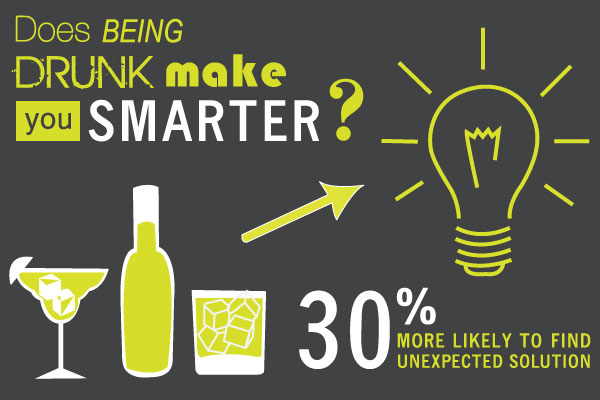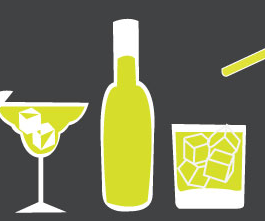 Just because you’re tired or have had too much to drink, doesn’t mean you aren’t a problem solver.
Just because you’re tired or have had too much to drink, doesn’t mean you aren’t a problem solver.
Studies at two colleges found a correlation between situations where the human brain couldn’t focus properly and the increased ability to solve insightful problems. Some St. Thomas students agree with the findings.
In a University of Illinois at Chicago study, students were given alcohol until they reached a blood-alcohol content of 0.075 and then were asked a set of questions. The study showed an increase in the students’ ability to answer insightful word problems when they were intoxicated and were “30 percent more likely to find the unexpected solution.”
Greg Robinson-Riegler, St. Thomas psychology department chair, said, “In general, (the human brain is) bombarded by way too much information to take it all in. So, you have to have some kind of selective mechanism that says ‘this is important, this isn’t important.’”
Robinson-Riegler added that he doesn’t know why being sleepy or intoxicated has that effect on the brain, but he said that “what alcohol and lack of sleep both do are lower your attentiveness and lower your conscious control, and maybe that needs to happen to come to some kind of spontaneous and creative solution.”
Mareike Wieth, an Albion College psychology professor, led a study where 428 undergraduate students were surveyed about their sleep habits and then tested at their “optimal” and “least optimal” time of day. Wieth found that students were more insightful problem solvers when they were tired than when they were well-rested.
St. Thomas freshman Ashley Bruber said that she is a “better problem solver” when not well-rested because she is “on a sort of no-sleep high” that allows her to be more productive.
While both studies concluded that the students were more insightful when their minds were inhibited by either alcohol or lack of sleep, Robinson-Riegler said that “it would be nice if people could let themselves just absorb situations and not overthink them sometimes. I think there’s ways to create those situations without doing those things.”
Sophomore Nick Pier said that when he drinks, “it’s like a bell-curve.”
“When drinking, the creativity goes up (at first) but then after a while it’s a lot more difficult to focus,” Pier said.
However, Robinson-Riegler said that while the studies might make it seem like you could be gaining something by being drunk or tired, you’re probably losing some important things, too.
Nick McAndrews can be reached at mcan1933@stthomas.edu.
Graphic created by Lynn Nguyen.



